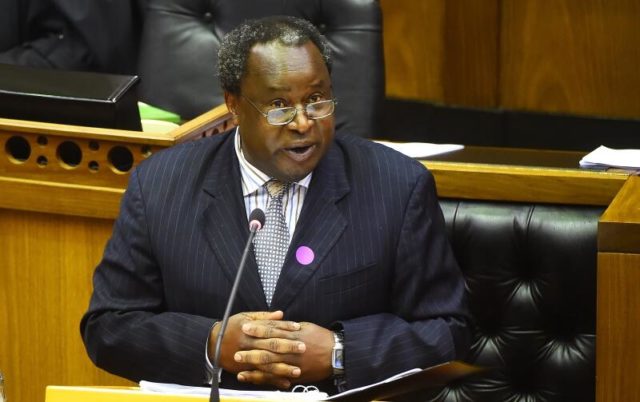THE GOVERNMENT will face off with public sector workers’ unions in the Labour Court this week as it reneged on implementing the last leg of the three-year public wage deal signed in 2018.
Finance Minister Tito Mboweni has warned that South Africa’s fiscus could collapse if the government continues to honour the wage agreement.
In his replying affidavit to a court challenge by workers’ unions, Mboweni argued that the government cannot implement a pay deal with public servants because it would lead to a fiscal crisis.
“What the government and the South African economy cannot now afford, and what is not just and equitable under the current circumstances, is for civil servants to claim yet further inflation-beating and private sector outperforming salary increases off an already high base,” he said.
Mboweni in September said that public sector wages had increased by 51 percent since 2008, and that the government would implement a pay freeze over the next three years.
Public sector workers have been on a go-slow and lunchtime pickets since Mboweni’s announcement, and have vowed to go to the highest court to challenge the decision.
South Africa’s debt is forecast to peak at 93 percent of gross domestic product (GDP) in 2023/24 when the country will be spending almost 6 percent of GDP on debt service costs.
Last week, Fitch Ratings said South Africa’s consolidated deficit will overshoot the government’s latest projection and rise to 16.3 percent of GDP in the year to March 2021, up from 6.4 percent in 2019/20.
“This largely reflects our assumption that the government will be forced to reverse a decision not to pay a wage increase agreed for the current fiscal year,” Fitch said.
Dr Chris Hamse, an economist at CH Economics, said the government would have to borrow an extra R78 billion if the unions win the court case.
“This will push the central government’s debt to GDP within the reach of 100 percent. “It is expected that trade unions will also try to put pressure on National Treasury over the next two months till the main Budget in February to scrap the proposed three-year wage freeze,” he said.
Meanwhile, judgment was reserved on Friday in an urgent application brought by the United National Transport Union against the Passenger Rail Agency of SA to force it to implement a wage agreement signed in October.
Judge P Nkituta-Nkontwana found that National Treasury was involved in the process, but Prasa could not say when the money would be paid to workers.








